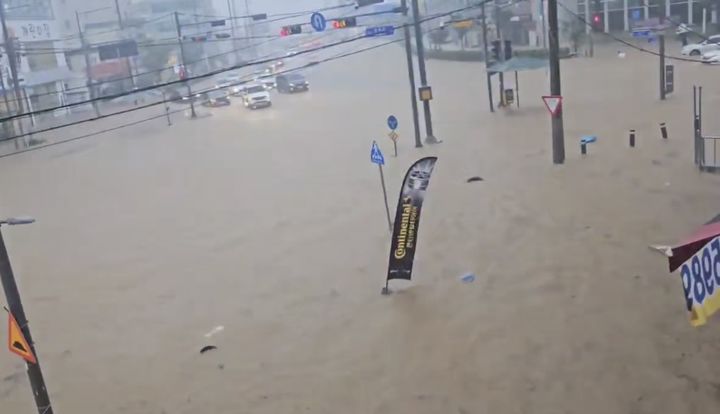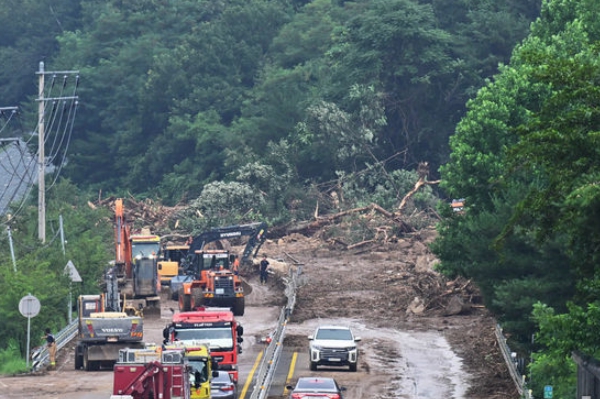

In South Chungcheong province, rescue workers raced to save people and animals. Photos showed cows stranded on rooftops and standing in knee deep water waiting for help. Some were lifted by crane and survived but sadly, others did not. Across 59 farms, many livestock suffered and some farmers lost their entire herds. In total, over 3,000 people were displaced and
at least four lives were lost. One tragic case involved a man who made a heartbreaking call to his wife before his car got swept away by the flood.
However, Korea is not alone when it comes to devastating floods. Across the globe, communities are struggling with the same crisis. In Russia, rescuers used boats to evacuate pets and farm animals. In May 2024, an intense tropical storm brought record breaking rainfall in Texas which submerged entire neighborhoods. As homes flood and roads transform into rivers, scientists warn that this is not just weather, but a consequence of climate change. Experts say that a warmer atmosphere holds more moisture which leads to heavier rainfall.
In response, governments are trying to prepare to help. South Korea has opened shelters and added flood warning systems. In other countries, green spaces and better drainage systems are being built. But many climate advocates say it’s not enough. They argue that we need to act before the next flood which means we need to start reducing carbon emissions, switching to cleaner energy, and making climate safety a global priority.

Local heroes are also stepping up to meet the challenge. Volunteers are organizing food and supply drives for families forced from their homes. Emergency workers are conducting risky rescues, saving stranded people and animals from rising waters. Nonprofit groups like the Korean Red Cross and the Community Chest of Korea have set up temporary shelters, provide medical care, and counseling to those affected. Despite these efforts, the scale of the problem remains overwhelming with more storms predicted in the coming weeks. Many are worried about how much worse the flooding could become, and whether the support system will hold up.
Today, climate change is reshaping our world. From Korea to Russia to Texas, floods are no longer rare. To protect the next generation from losing their homes, their schools, we must take action now. We need to start by coming together, supporting communities facing disaster with resources and kindness. We also need stronger climate policies that cut pollution and invest in clean energy. We need better drainage and green spaces that soak up water before it floods. And we should educate ourselves and others about risk and how to prepare. No one has to spend the summer afraid of rain. If we want to build a safer future, it starts with helping one another.
<Hyeona Kim, Student Reporter> Crescenta Valley High School hkim0741@stu.gusd.net







